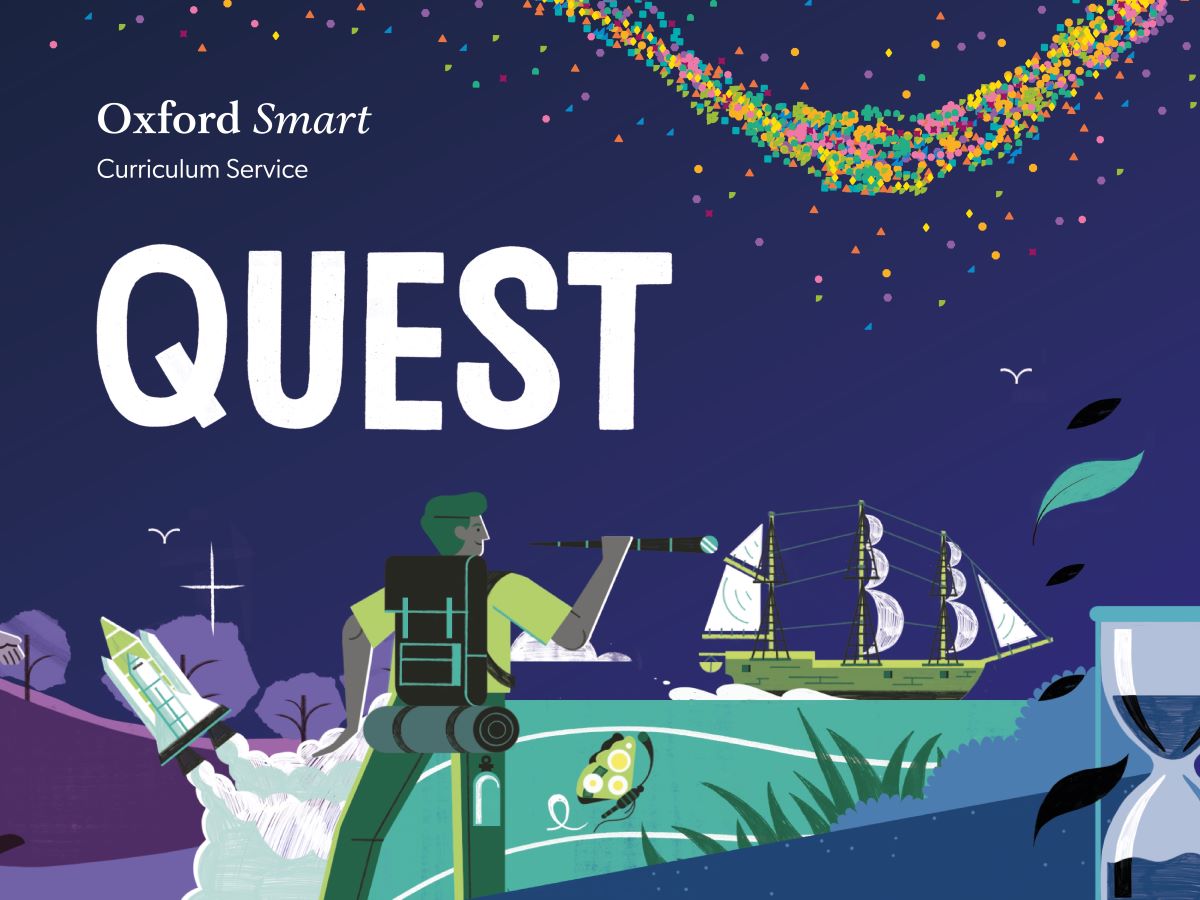Have you heard the one about the new headteacher? She arrived at her new school, where results had trended low for years, and issued ‘updated’ (that is, enhanced) Year 11 target data. There’s been a mistake with the previously published target grades, she explained, these new, higher target grades are the correct ones. Of course, the next results day saw the school’s best-ever outcomes, with every student making more than expected progress.
This story – perhaps an educational urban myth? – seems to have its origins in the Pygmalion in the Classroom 1968 research by Robert Rosenthal and Lenore Jacobson in which teachers were falsely told that some pupils’ IQ levels were higher, and these pupils went on to make stronger progress than their peers. This key principle of high expectations is one of the six pillars that underpin the Oxford Smart Curriculum. Put simply, the message is: expect more and you will get more.
But as writers of the materials for Oxford Smart Quest, a KS3 course which follows the Oxford Smart Curriculum for English, how do we turn translate such a truism into practical, engaging resources that teachers want to use and that deliver quality outcomes for every student, regardless of their starting point?
As a member of the writing team my first job is accessibility, because every teacher wants every student to feel they can succeed. Careful scaffolding is key – from the way ideas are introduced, to teacher modelling and clear, incremental steps to help all students to access the curriculum. When high expectations are built on such strong planning, all students benefit – especially those whose literacy levels are below age-related expectations or who have significant learning gaps. Knowledge and understanding needs to be built incrementally. In Quest, each chapter includes step-by-step explanations and activities that gradually embed skills and move students towards independence.
So when they reach the final tasks of each unit, students will hopefully respond with positivity and enthusiasm, because the challenge is both manageable and enjoyable. High expectations can be more easily achieved when there is a smooth and well-informed pathway of learning to the end-point.
This starts with students’ understanding of context, as the Pioneer Schools who had the opportunity to trial Oxford Smart Quest so rightly pointed out. The right background knowledge hooks learners in and increases their confidence, reduces cognitive load and orientates them for the unfamiliar and the challenging. In Quest, context and metacognition are delivered through chapter intros and learning overviews, which set out the direction of travel for students in a question-and-answer format. The ‘big idea’ for each unit within a chapter is complemented by bite-size Did you knows?, and students are encouraged at all stages to draw on their prior knowledge.
High expectations have also been built in through a brilliant range of extracts. Choosing the texts for new curriculum materials is, for me, always the most exciting part of the process of writing. I was looking for texts that tell wonderful stories and weave words in engaging ways, because the extracts we include have to be inspirational – and they have to illustrate the learning concepts of our discipline. Will Stephen King’s The Body help to define the meaning of jeopardy? You bet. Will Jacqueline Woodson’s Brown Girl Dreaming help students understand the conventions of autobiography? Absolutely.
Through great texts like these, the high expectations of the Oxford Smart Curriculum for English are shouted from every page. By exposing students to the best novels, poets and journalists, we are showing them the way to new worlds and giving them the skills to go exploring.

About the author
Jane Branson writes regularly for OUP. Drawing on nearly 30 years’ experience in schools as a classroom teacher, an Advanced Skills Teacher, a head of department, a governor and a local authority education adviser, she now runs her own educational consultancy and provides support and training directly to schools.



Such a fantastic way to keep students engaged while also improving their skills effectively!